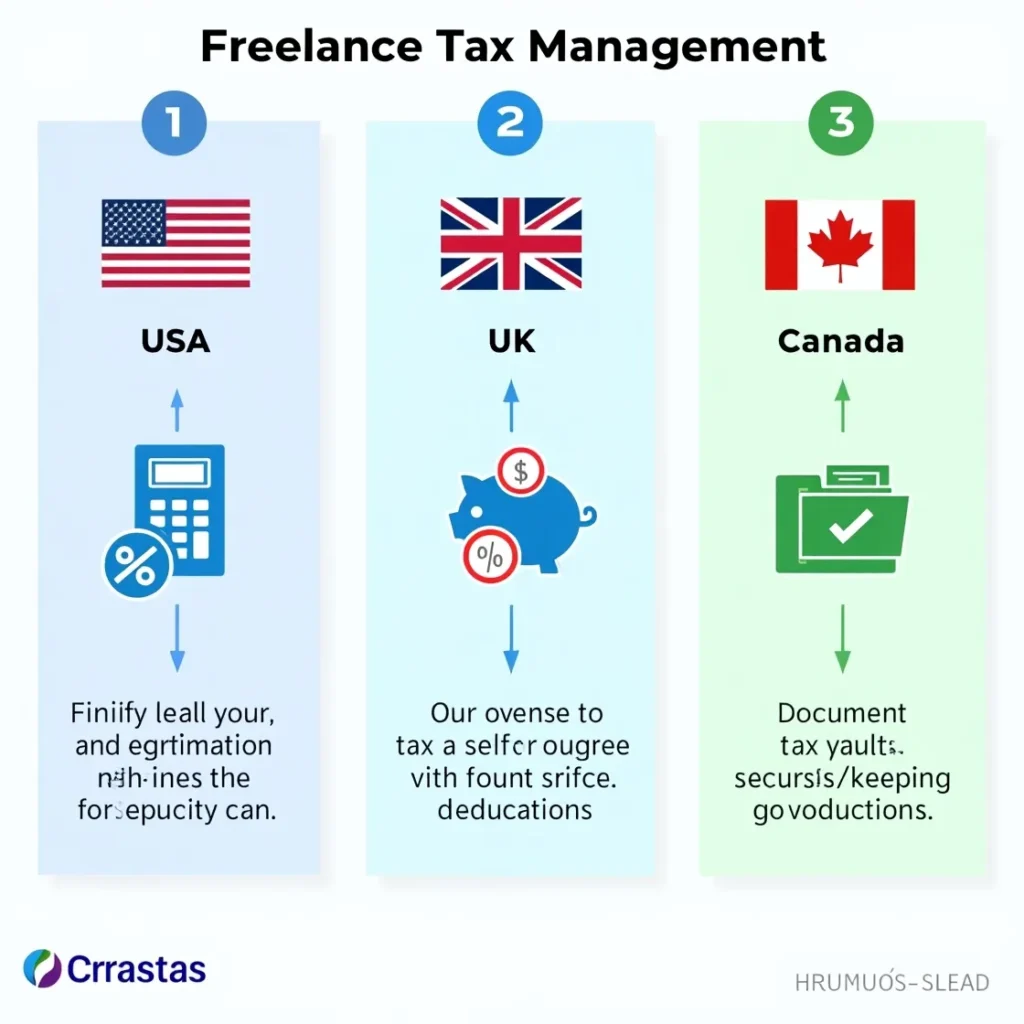Thrive in the Gig Economy: A Freelancer’s Guide to Financial Success in 2025 (USA, UK, Canada)
Introduction: The traditional 9-to-5 job is no longer the only path to financial stability. In 2025, the gig economy continues to flourish across the USA, UK, and Canada, offering unprecedented flexibility and income potential for freelancers and independent contractors. While the freedom is liberating, managing finances as a self-employed individual requires a unique set of strategies. This guide will equip you with the essential financial knowledge to not just survive, but truly thrive, in the dynamic world of freelancing.
Understanding the Gig Economy & Its Financial Realities
This section defines the gig economy and highlights its distinct financial characteristics.
What is the Gig Economy?
- Definition: A labor market characterized by short-term contracts or freelance work as opposed to permanent jobs.
- Growth in 2025: Briefly discuss its expansion in the USA, UK, and Canada due to digital platforms and changing work preferences.
Unique Financial Challenges for Freelancers
- Irregular Income: Income flow can be unpredictable, making budgeting tricky.
- Self-Employment Taxes: Freelancers are responsible for both employer and employee portions of taxes.
- No Employee Benefits: Lack of paid time off, health insurance (often), or retirement matching.
- Cash Flow Management: Ensuring enough money is available to cover expenses between projects.
Mastering Your Income & Expenses: The Freelance Budget
Effective budgeting is crucial for managing unpredictable freelance income.
1. Separate Business and Personal Finances
- Action: Open dedicated bank accounts for business income and expenses.
- Benefit: Simplifies tax preparation and provides a clear financial picture.
2. Implement a “Buffer” Budget
- Strategy: Aim to have at least 3-6 months of business expenses saved, plus your personal emergency fund.
- Benefit: Smoothes out income fluctuations.
3. Track Every Dollar In and Out
- Tools: Use accounting software (e.g., QuickBooks Self-Employed, FreshBooks) or simple spreadsheets to categorize all income and expenses.
- Benefit: Essential for budgeting, tax preparation, and understanding profitability.
Navigating Taxes as an Independent Contractor in 2025
Tax planning is often the biggest hurdle for new freelancers.
Understanding Self-Employment Taxes
- USA: Explain quarterly estimated taxes (income tax, Social Security, Medicare).
- UK: Income Tax and National Insurance contributions.
- Canada: Income Tax and CPP/QPP contributions.
- HST/GST/VAT: Briefly mention sales taxes for services/products.
Setting Aside Money for Taxes
- Recommendation: Dedicate a percentage (e.g., 20-35% depending on income and region) of every payment received to a separate tax savings account.
- Benefit: Avoids year-end tax surprises.
Maximizing Tax Deductions
- Common Deductions: Home office expenses, software, professional development, business travel, health insurance premiums.
- Record Keeping: Emphasize meticulous record-keeping for all business-related expenses.

Building Wealth & Security as a Freelancer
Beyond daily management, long-term financial planning is vital for independent workers.
1. Build a Robust Emergency Fund
- Why: Even more critical for freelancers due to income variability. Aim for 6-12 months of expenses.
2. Invest for Retirement
- Options: Explore self-employed retirement accounts like SEP IRA / Solo 401(k) (USA), SIPP / NEST (UK), or RRSP (Canada).
- Benefit: Tax advantages and long-term growth.
3. Secure Health and Other Insurances
- Types: Health insurance, disability insurance, critical illness insurance, professional liability insurance.
- Importance: Protecting yourself from unforeseen events.
4. Plan for Professional Development
- Investment: Set aside funds for courses, certifications, and tools that enhance your skills and earning potential.
- Long-Term Value: Staying competitive in the market.

Conclusion: Thriving in the gig economy in 2025 is within reach for freelancers in the USA, UK, and Canada, but it demands proactive financial management. By mastering your budgeting, meticulously planning for taxes, and strategically building wealth and security, you can enjoy the freedom and flexibility that freelancing offers without sacrificing your financial future. Embrace these strategies, stay disciplined, and pave your way to lasting financial success as an independent professional.

